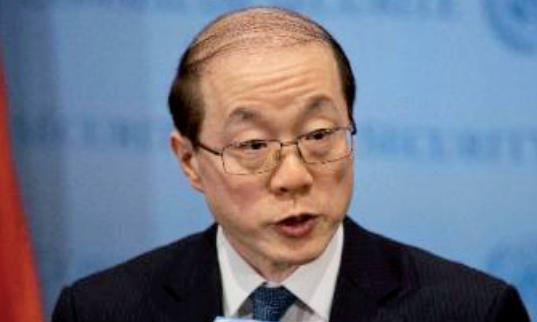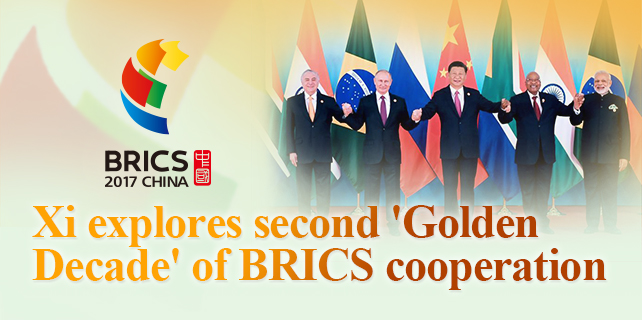China stands firm on DPRK measures
 |
|
Liu Jieyi, China's permanent representative to the UN |
China condemned the latest nuclear test by the Democratic People's Republic of Korea and reiterated its stance on achieving denuclearization of the Korean Peninsula at a United Nations Security Council emergency meeting on Monday morning.
Members of the UN Security Council remained divided over possible new sanctions against the DPRK, with the United States, France and the United Kingdom as well as Japan favoring new sanctions.
The DPRK said on Sunday that it had successfully detonated a hydrogen bomb that can be carried by an intercontinental ballistic missile.
It was Pyongyang's sixth nuclear test after the council adopted the strongest sanctions against it last month following its two ICBM launches in July. Resolution 2371 bans exports of DPRK's coal, iron and seafood.
"It's China's firm stance, as well as the common goal of the international community, to achieve denuclearization of the Korean Peninsula, maintain a nuclear nonproliferation system and maintain peace and stability in Northeast Asia," said Liu Jieyi, China's permanent representative to the UN.
"We strongly urge the DPRK to face the resolve of the international community on a denuclearized peninsula and comply with relevant UN Security Council resolutions, stop taking wrong actions that will worsen the tension and run against its own interest, and return to dialogue to resolve the problem," he said.
Liu said China, along with the international community, will implement the UN council's resolutions related to DPRK "comprehensively and completely".
The peninsula issue must be solved in a peaceful way, and China won't allow chaos or war on the peninsula, Liu said.
The envoy said the suspension-for-suspension proposal and dual-track approach put forward by China together with the Russian proposal of a step-by-step approach is a realistic and feasible roadmap for the settlement of the issue. Liu called on the relevant parties for due consideration and positive responses.
The idea of a dual approach involves parallel efforts to move forward both on de-nuclearization and the establishment of a peaceful mechanism on the peninsula; the initiative of suspension-for-suspension calls for the DPRK to suspend its nuclear and missile activities and for the United States and South Korea to suspend their large-scale military training exercises.
Jeffrey Feltman, under-secretary-general for political affairs at the UN, said that data from the Comprehensive Nuclear-Test-Ban Treaty Organization showed that the DPRK's recent nuclear test had an estimated yield of between 50 and 100 kilotons, more than five times more powerful than the atomic bomb detonated over Hiroshima, Japan in 1945.
US Ambassador to the UN Nikki Haley said DPRK leader Kim Jong-un is "begging for war".
"The time has come to exhaust all diplomatic means to end this crisis, and that means quickly enacting the strongest possible measures here in the UN Security Council," Haley said. "Only the strongest sanctions will enable us to resolve this problem through diplomacy. We have kicked the can down the road long enough. There is no more road left.
"This crisis goes well beyond the UN," she said. "The United States will look at every country that does business with North Korea as a country that is giving aid to their reckless and dangerous nuclear intentions."
Russian envoy Vassily Nebenzia cautioned that past failure of the council to curb the DPRK's nuclear and missile programs was because the resolutions "were only geared toward leveraging sanctions mechanisms".
"Russia calls on the international community not to yield to emotions, (but) to act in calm and balanced ways," he told the same meeting, adding that a comprehensive settlement can be achieved only through political and diplomatic channels.
Francois Delattre, French ambassador to the United Nations, called for the adoption of new sanctions by the Security Council along with autonomous sanctions by the EU.
He said the threat from the DPRK has changed both in dimension and nature, from regional to global, from virtual to imminent, from serious to existential.
Japanese envoy Koro Bessho said: "Japan stresses the need for the council to adopt swiftly a new resolution with further robust sanction measures."
Xinhua contributed to this story.
wanglinyan@chinadaily.com.cn









